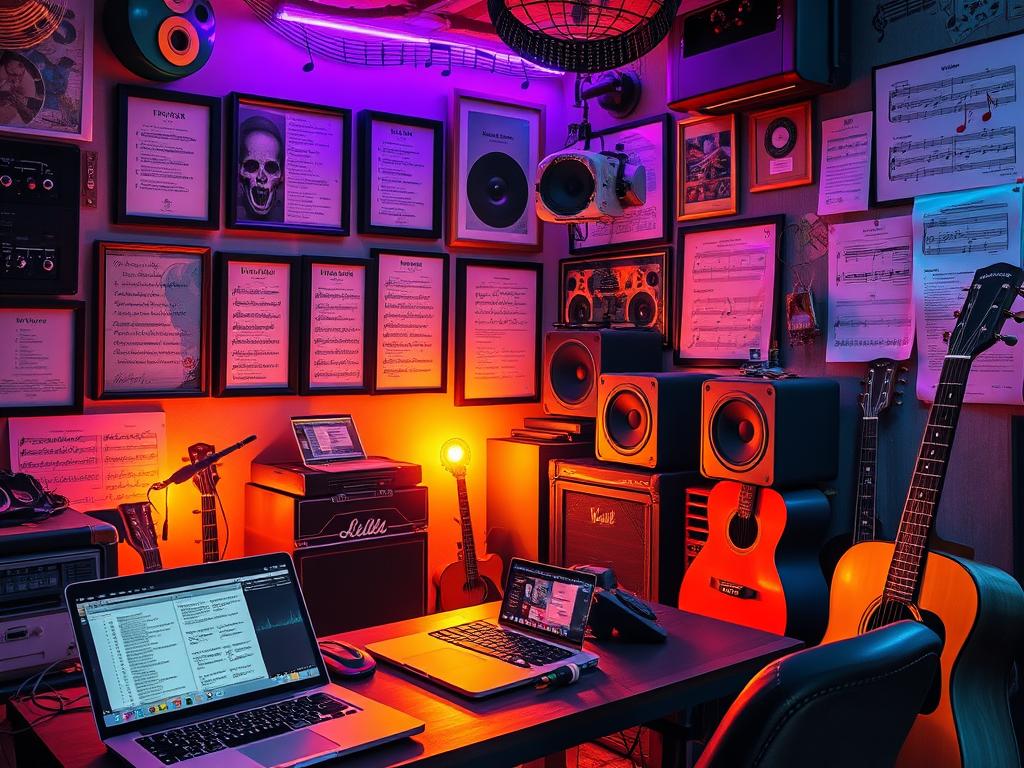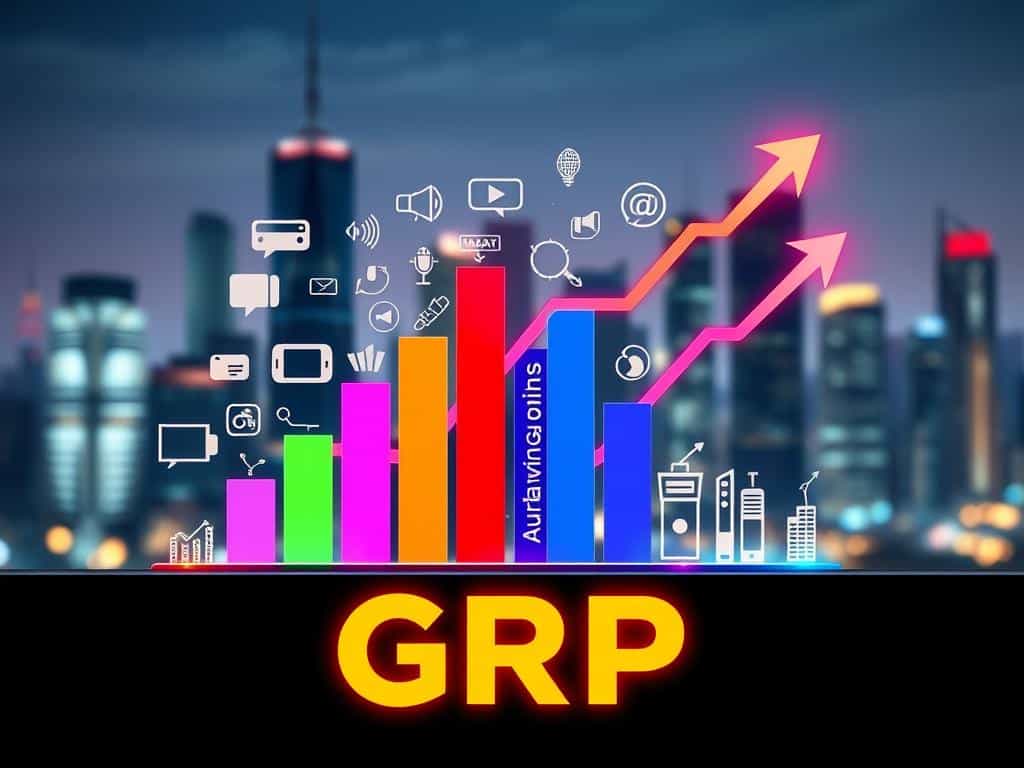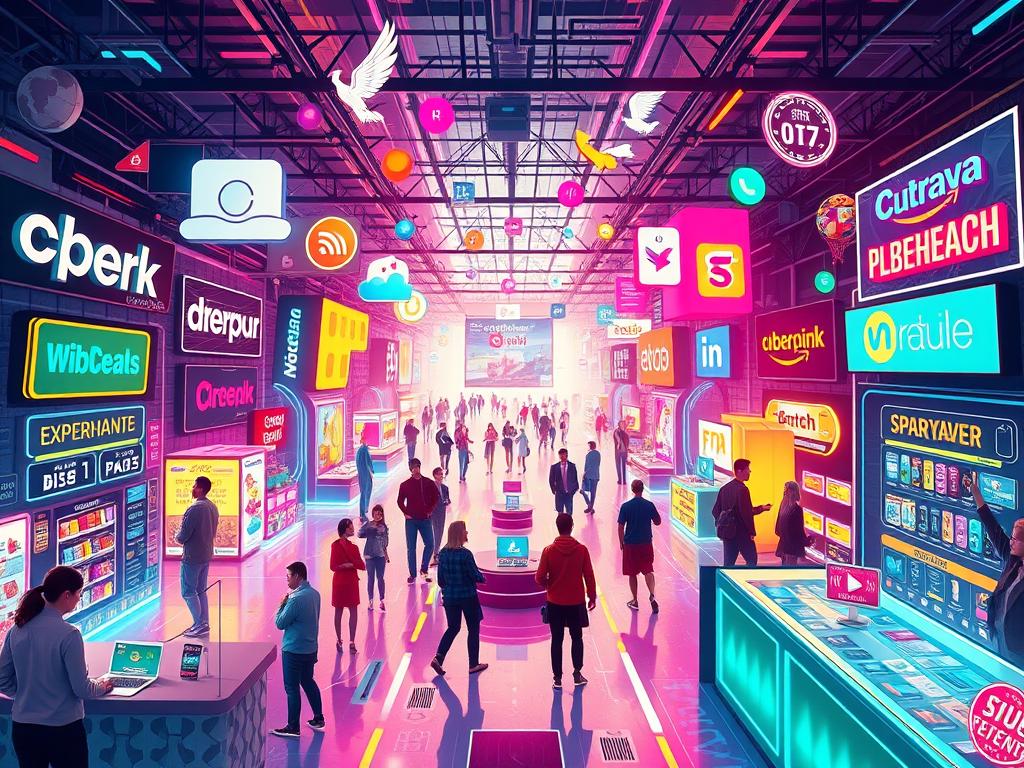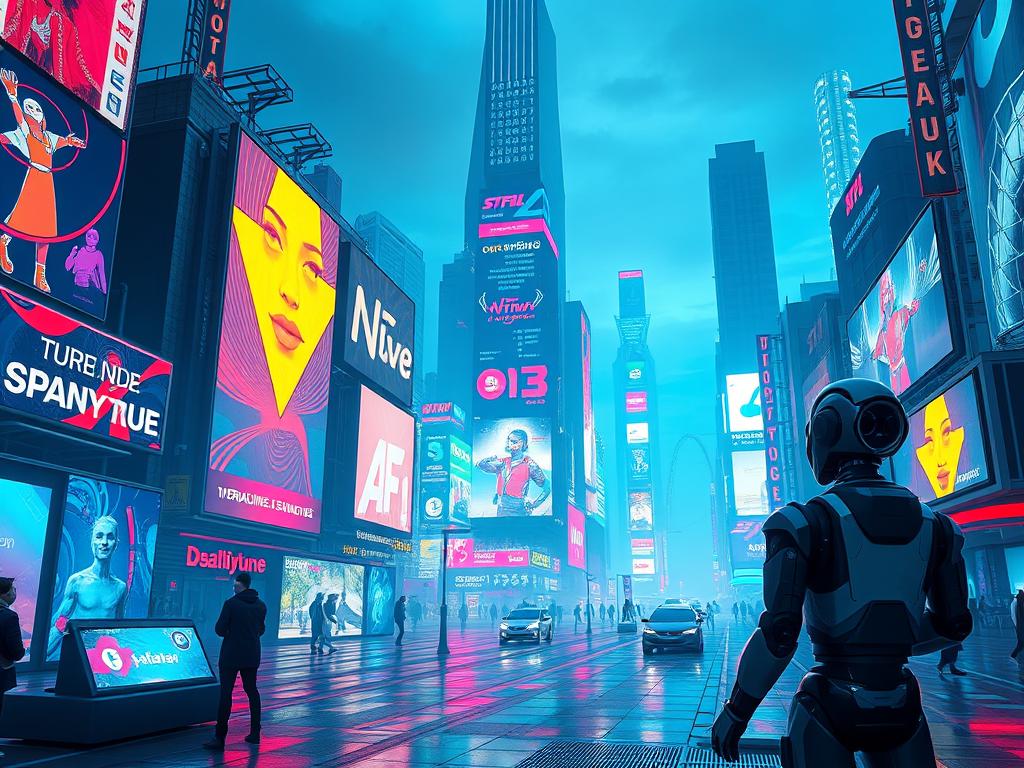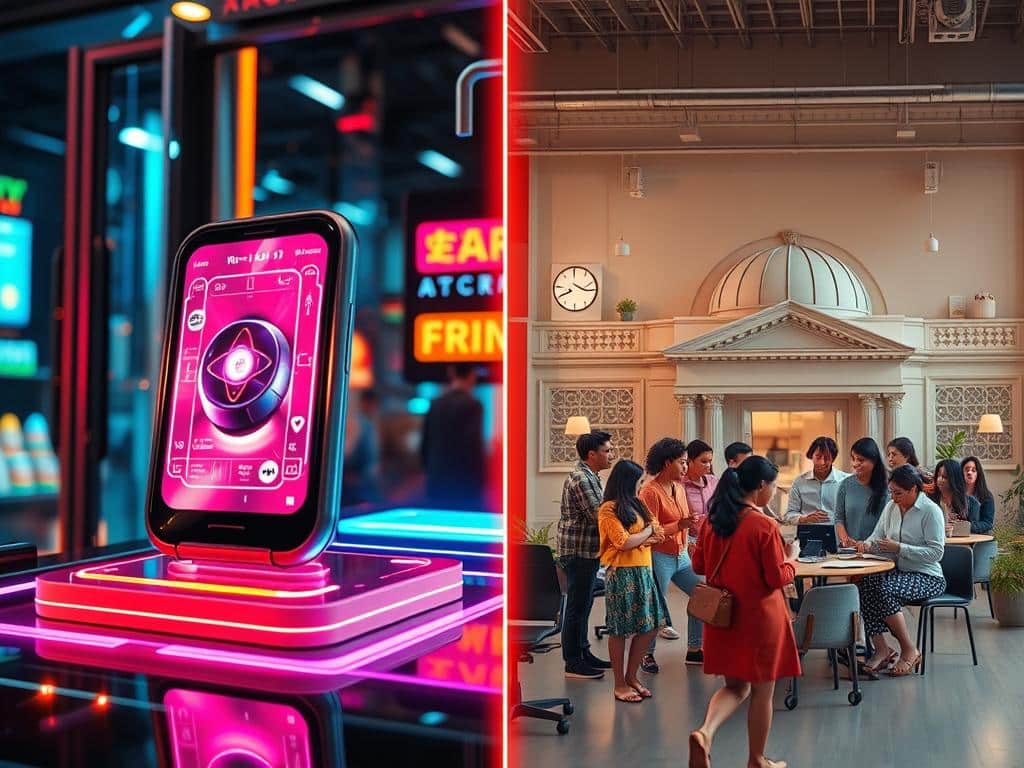Embarking on the journey of selling your music to advertising companies is both an exciting and challenging endeavor. The booming demand for unique, royalty-free music in advertising campaigns creates a golden opportunity for aspiring musicians like you to break into this lucrative market.
To get started, it’s essential to understand that advertising agencies are consistently on the lookout for fresh, commercial music to enhance their projects. Building a robust portfolio that showcases your versatility in different music genres and styles is paramount. This means your demo should highlight your best original songs, professionally recorded to meet the industry standards.
Equally important is the negotiation of rates beforehand. Knowing the typical pricing, which can range from $10 to $200 per song on licensing platforms, helps in setting realistic expectations. Recording at a professional studio may incur costs between $500 to $1,000, but it is a vital investment in producing high-quality content.
Networking plays a crucial role in the music industry. Building professional relationships through industry connections, attending events, and leveraging social media can significantly boost your visibility and open doors to more opportunities. A solid digital presence on streaming platforms makes it easier for marketers to discover your work.
Creating a cohesive package, such as a comprehensive press kit, is another important step. It enhances your credibility and aids in pitching your music effectively to potential clients. Utilizing licensing platforms offers a supplemental income stream, but it must be balanced with direct marketing strategies to maximize reach and profit.
By meticulously crafting your musical portfolio, actively networking, and strategically promoting your work, you align yourself with the needs of advertising companies and stand a better chance of successfully selling your music in the competitive landscape of advertising campaigns.
Creating a High-Quality Demo
Crafting a high-quality demo is fundamental to effectively selling your music to advertising companies. This demo recording serves as your musical portfolio, showcasing your unique sound and capabilities. Here’s how you can create a compelling, professional demo that can catch the attention of potential clients.
Choosing Original Songs
Your demo should feature 5-10 original tracks that you have created. These songs should highlight your best work and represent various music genres to demonstrate your versatility. It’s essential to avoid explicit lyrics, as your audience will be diverse. For electronic artists, using stock or cleared sounds ensures compliance with licensing requirements.
Highlighting Different Styles
Showcasing a variety of music genres in your demo can significantly enhance its appeal. Including different styles such as pop, hip hop, rock, and jazz highlights your ability to cater to various tastes and project types. Ensure that each track is distinctive yet cohesive, forming a well-rounded representation of your musical talent.
Professional Recording
Investing in a professional studio recording is crucial for the quality of your demo. High-quality production often requires a budget of $500-$1,000 but can make a significant difference in how your music is received. Save the individual tracks as they might need further editing as requested by studios. Using a digital audio workspace (DAW) like Audacity or Garage Band can help in mixing your tracks into a succinct demo tape, ideally no longer than five minutes.
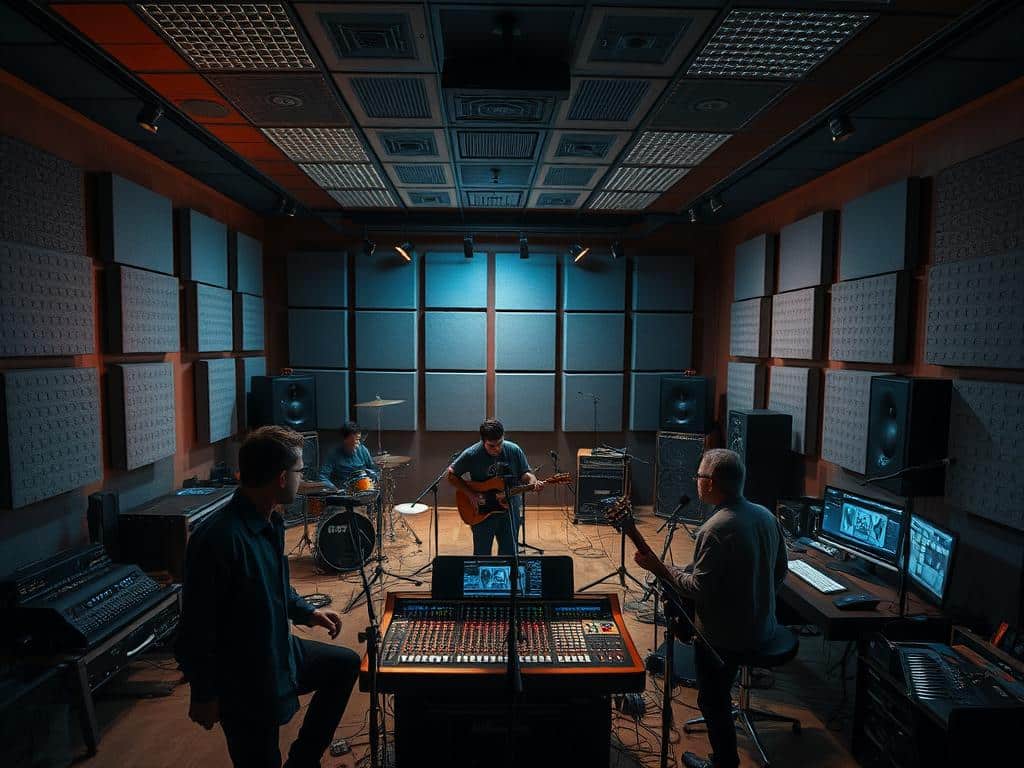
Recording each track in a professional studio with proper engineering ensures that your demo recording stands out. This attention to detail in creating a polished, high-quality demo is instrumental in successfully marketing your music to advertising companies.
- Original Songs: Feature 5-10 original tracks without explicit lyrics.
- Variety: Include tracks from multiple genres like pop, hip hop, rock, and jazz.
- Studio Recording: Record in a professional studio to ensure high-quality sound.
- Editing and Mixing: Use DAWs like Audacity or Garage Band to mix your demo.
Networking and Building Professional Relationships
Undiscovered artists, who make up more than 90% of the music industry, can significantly benefit from effective networking and building professional relationships. Establishing connections with key players can lead to numerous opportunities.
Industry Connections
Building music industry contacts is critical. Engaging with professionals within the field can open doors to profitable collaborations. Music licensing companies such as Music Bed often work with major brands like Nike, Google, and Netflix, highlighting the importance of strategic partnerships. Networking sessions with industry employees and decision-makers are essential in securing more chances for success. Moreover, having a mentor can guide you in navigating the complexities of the music business.
Attending Events
Attending industry events is another effective way of networking. Hundreds of music industry networking events and conferences take place across the country, offering numerous chances to connect with peers and professionals. Being present at music festivals, workshops, and seminars showcases your commitment and professionalism. Remember, knowing what to discuss and how to interact at these events is crucial, as good manners and preparation significantly impact the impressions you leave.
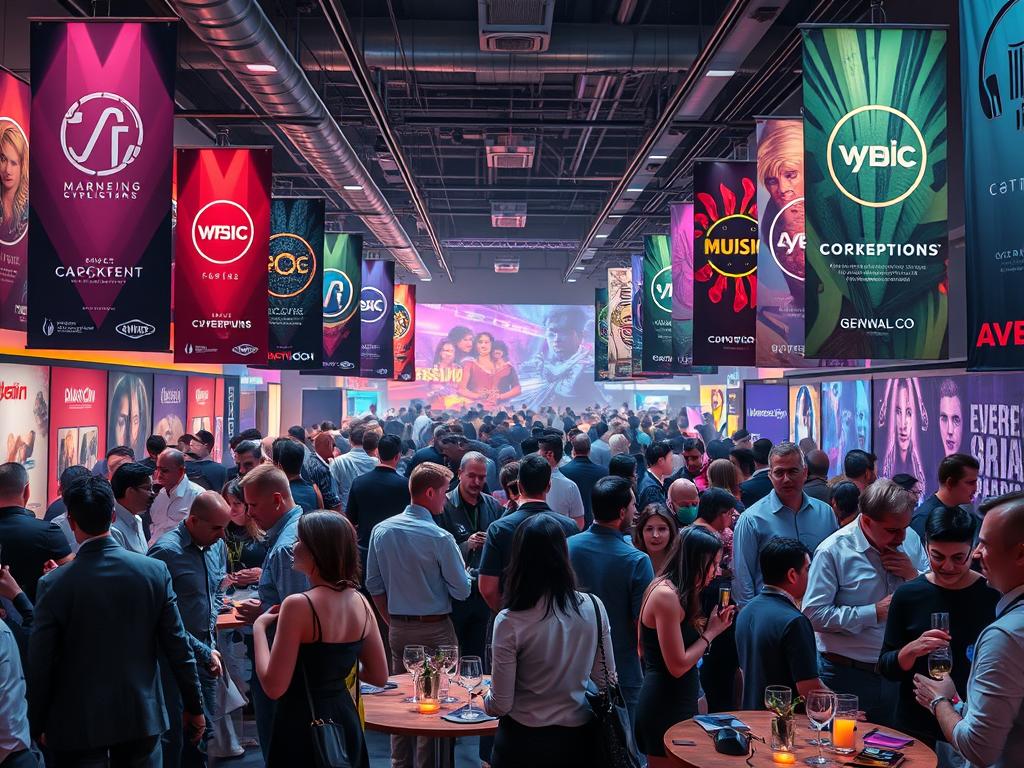
Leveraging Social Media
Social media marketing is indispensable for any modern artist. Platforms like Facebook, Twitter, and Instagram enable you to engage with fans and industry personnel directly. Building a strong digital presence on streaming platforms like SoundCloud, Spotify, and Bandcamp is vital for exposure. Effective social media networking involves joining relevant conversations and providing valuable insights. A well-crafted press kit, including your music history and any media coverage, can further facilitate selling your music. Additionally, platforms such as Fiverr and Upwork can connect you with clients seeking custom music, increasing the chances of your music being noticed and used commercially.
| Strategy | Benefit |
|---|---|
| Attending Industry Events | Direct Networking Opportunities |
| Social Media Engagement | Wide Reach and Visibility |
| Professional Mix and Master | Increased Chances of Notice |
| Using Press Kits | Facilitated Selling Process |
How To Sell Your Music To Advertising Companies
Breaking into the advertising industry requires a strategic approach. By mastering the art of targeting advertising agencies, pitching your music effectively, and leveraging music licensing platforms, you can significantly enhance your chances of success.
Research and Targeting
Understanding the specific needs and styles of the advertising agencies you’re aiming to target is crucial. Researching the types of campaigns they produce can inform your approach and ensure your music is a perfect fit. Analyze their previous work and ascertain what kind of music resonates with their campaigns. This will provide you with a solid foundation for targeting advertising agencies.
Pitching Your Music
Pitching music to advertising companies involves not just having high-quality tracks but also presenting them compellingly. Tailoring your pitch to align with the agency’s style and campaign objectives can differentiate you from the competition. A well-crafted pitch should include a press kit with a detailed music history, style samples, biography, and contact details. It’s essential to highlight instrumental versions of songs as well, as these are often required for sync licensing. Additionally, networking with industry players, such as music supervisors, can open up more pitching opportunities.
Utilizing Licensing Platforms
Joining multiple music licensing platforms can be a strategic move to increase your music’s exposure. These platforms connect artists with commercial projects looking for specific sounds. Understanding the terms and conditions of each platform, including cross-listing rules, is critical. Platforms like Promoly can streamline your music promotions and provide useful analytics to target potential advertisers more effectively. Signing up for numerous platforms increases the chances of showcasing your music to a wider range of projects leading to faster sales and boosting your commercial success.
Promotional Strategies
Developing effective promotional strategies is crucial for selling your music to advertising companies. Essential components to focus on include music promotion, digital marketing, and a robust online music presence. One of the first steps is ensuring your tracks are professionally mixed and mastered for a polished, marketable sound. This not only elevates your music but also enhances its commercial appeal.
Creating and maintaining a compelling press kit is another vital step. Your press kit should feature your best music, an engaging biography, and any media coverage or notable achievements. This toolkit serves as your primary marketing asset when reaching out to potential buyers.
A strong online music presence is indispensable in today’s digital landscape. This includes having an authoritative, user-friendly website where fans and industry professionals can learn more about you and your work. Your website should drive traffic and allow for email collection, which is fundamental for long-term fan engagement.
Social media plays a pivotal role in music promotion, with platforms like Instagram and TikTok allowing you to connect with a worldwide audience. Industry statistics emphasize the importance of focusing on channels where engagement is enjoyable, so concentrate on one or two platforms initially. Consistently posting and engaging with your followers is imperative for building momentum and expanding your reach.
- Utilizing services like Groover can help you pitch your music to respected blogs, playlist curators, and press outlets, thereby increasing your exposure.
- Creating engaging, entertaining content on social media and consistently posting updates helps to keep your audience interested and active.
- Deploying landing pages for marketing campaigns is an effective way to drive interest and engagement, especially during the promotion of new releases or exclusive content.
Engaging with influencers and participating in the broader online music community is another effective promotional strategy. This expands your network beyond your direct contacts and leverages the reach of well-established personalities to amplify your music promotion efforts.
Finally, live shows offer a unique opportunity to connect with your audience directly, sell merchandise, and enhance your online music presence. Investing in PR and airplay can yield significant results, but these endeavors often require considerable planning and budget allocation.
| Strategy | Description |
|---|---|
| Press Kit | Includes music, biography, media features; essential for targeting potential buyers. |
| Online Presence | Authoritative website and email collection for deeper fan engagement. |
| Social Media | Focus on 1-2 platforms, consistent engaging content to build fanbase. |
| Influencer Engagement | Participating in music communities and collaborations to expand reach. |
| Live Shows | Engage directly with fans, sell merchandise, and promote music. |
Utilizing these multifaceted promotional strategies can significantly bolster your music promotion efforts, ensuring your music captures the attention of advertising companies and beyond.
Can Billboard Advertising Help Promote the Music You Want to Sell to Companies?
Billboard advertising can effectively spotlight the music you’re trying to sell to companies by ensuring maximum exposure in high-traffic areas. Eye-catching designs and strategic placement can lead to increased awareness. By buying billboard ad space, you position your music in front of potential decision-makers and clients, amplifying your promotional reach effortlessly.
Conclusion
Breaking into the world of selling your music to advertising companies may seem daunting, but with persistence and strategic music marketing, achieving commercial music success is within your reach. High-quality demos showcasing original songs and diverse styles are fundamental to capturing the attention of industry professionals. Pairing these efforts with professional recording ensures you’re presenting your best work.
Networking and building professional relationships are essential. By fostering industry connections, attending key events, and leveraging social media, you create valuable industry opportunities. Consider how successful campaigns like Chevrolet’s use of Bob Seger’s “Like a Rock” or Apple’s iPod advertisement featuring Jet’s “Are You Gonna Be My Girl” transformed the brands and increased music sales.
Researching and targeting potential clients, pitching your music effectively, and utilizing licensing platforms are pivotal steps in selling your music. Promotions should be tailored, consistent, and adaptive to the evolving music and advertising landscape. Programs like Save The Music’s initiatives, which provide tech tools and industry masterclasses, underscore the importance of embracing innovation and continuous learning.
Overall, finding success in this competitive space involves a blend of producing exceptional music, strategic music marketing, and embracing every opportunity for exposure. With estimated global music industry revenues poised to surpass $65 billion by the end of 2023, the potential is vast. Stay committed, use every tool at your disposal, and keep refining your approach to steadily climb the ladder toward commercial music success.


